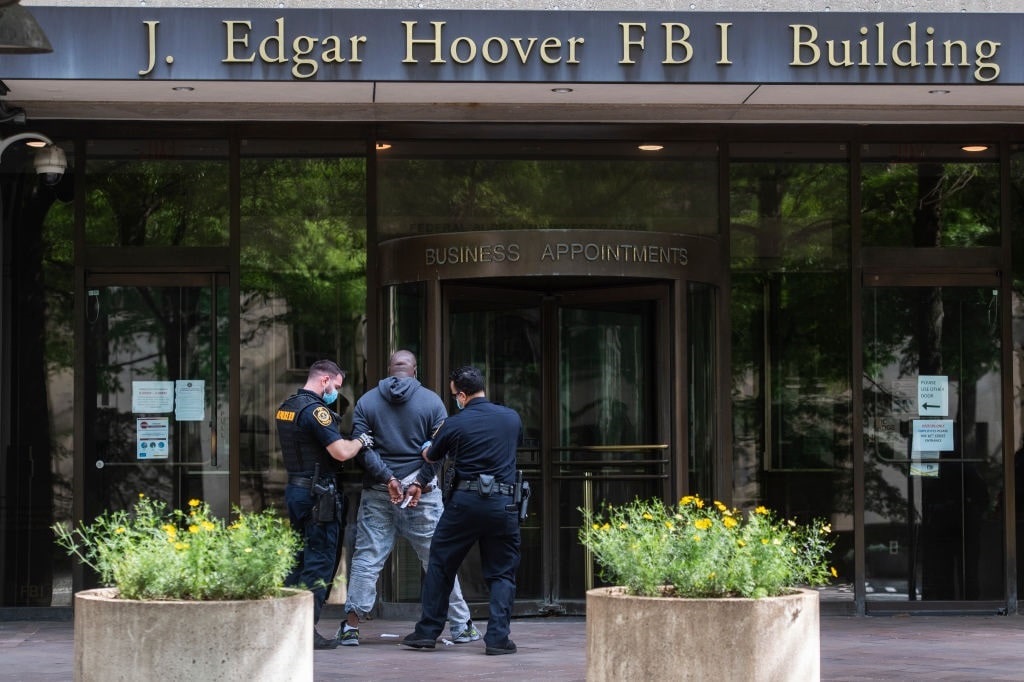A strange trend has emerged in the law – strange and dangerous. While some crimes like robbery, shoplifting, and drug dealing – things that require criminal intent – have been decriminalized in many areas, the already quite large body of federal regulation has grown under President Joe Biden, putting unsuspecting citizens who don’t intentionally or knowingly break the law increasingly at risk for prosecution. This isn’t entirely new, as it follows decades of federal expansion at the expense of states’ rights and US federalism. But with a robust push from the current administration, federal agencies have been weaponized for social justice warfare, lawfare against political adversaries, and a complex regulatory oversight scheme that essentially criminalizes what once were civil violations. This bureaucratic overcriminalization threatens the nation’s stability and the rule of law.
Federal Expansion Through Rulemaking
On April 30, the House Judiciary Subcommittee on Crime and Federal Government Surveillance heard testimony on “Overreach: An Examination of Federal Statutory and Regulatory Crimes.” Courts and legislators are increasingly concerned that traditional legal protections for American citizens are being scrapped by a federal regulatory juggernaut that concurrently obscures state and local criminal jurisdiction by duplicating offenses.
 Witnesses testified that there are currently some 4,000 federal criminal laws and 300,000 federal regulatory “offenses.” Patrick A. McLaughlin, an attorney testifying on behalf of the non-profit, non-partisan Mercatus Center at George Mason University, averred that “it would be impossible for any human to read the entirety of federal laws and regulation,” taking the average adult about three years to read them all as a full-time job.
Witnesses testified that there are currently some 4,000 federal criminal laws and 300,000 federal regulatory “offenses.” Patrick A. McLaughlin, an attorney testifying on behalf of the non-profit, non-partisan Mercatus Center at George Mason University, averred that “it would be impossible for any human to read the entirety of federal laws and regulation,” taking the average adult about three years to read them all as a full-time job.
McLaughlin related the massive proliferation of federal criminal statutes and regulations over the past three decades, many of which occurred during Bill Clinton’s tough-on-crime stint from 1994-1996. He testified that his research “has demonstrated how the buildup of rules over time significantly slows economic growth,” that federal incarceration rates have increased in tandem, and that duplication of state and federal offenses results in redundant crimes and public confusion. Federal overcriminalization wastes “limited federal resources on problems better left to the states,” he argued, exposing offenders to multiple prosecutions and tempting prosecutors to allege a plethora of potential charges, “opening the door for bias.”
Scourge of Federal Overcriminalization
Former US District Attorney Brett Tolman, who serves as executive director of Right on Crime, identified overcriminalization as a severe problem for any free nation, offering citizens “seemingly benign choices … that can unknowingly lead to criminal sanctions.” He decried the removal of mens rea (intent) elements for many statutory and regulatory offenses and faulted “the bloated administrative state” as the chief culprit. He asserted that “Congress has overstepped into the traditionally state-held space” and this has opened the door “with political pressures taking precedence over the rule of law and where the Justice Department has the potential to use its power and discretion as a political weapon.”
Tolman offered a prescription to reverse this scourge: Congress must rein in agencies from “creating new criminal offenses as a method of regulating business activities,” which are better handled by fines and market forces. It must ensure that agencies incorporate mens rea requirements in regulations so citizens are not sent to prison when they have no awareness of or intention to violate a bureaucratic rule. Overcriminalization also stems from over-delegation of legislative (congressional) powers to the executive and administrative branches.
Tolman called for Biden to reinstate Donald Trump’s Executive Order, “Protecting Americans From Overcriminalization Through Regulatory Reform,” which:
“required agencies that issue regulations with criminal penalties to ‘be explicit about what conduct is subject to criminal penalties and the “mens rea” standard applicable to those offenses.’ The order, taking heed of [James] Madison’s Federalist Papers, ordered agencies to make all regulatory criminal laws ‘clearly written so that all Americans can understand what is prohibited and act accordingly.’ Unfortunately, with a stroke of his pen, President Biden undid this criminal justice reform.”
A Double Standard?
Yet the Biden administration has concocted a slew of new regulations to criminalize once-legal conduct even as liberal “decriminalization” policies are turning violent criminals loose with no-cash bail, reduced sentencing, and non-prosecution of drug dealing, shoplifting, and numerous other crimes. Biden signed so-called “hate speech” legislation in the COVID-19 Hate Crimes Act, expanded Title IX protections for transgender students that mandate gender pronoun compliance, and strengthened investigations against police officers following the death of George Floyd. Though he is pushing to reduce criminal penalties for marijuana use and has essentially decriminalized illegal immigration, this expansion has weaponized federal agencies in their social justice crusade.
Overcriminalization is a growing federal regulatory problem, even as the Biden administration displays a double standard toward the rule of law and its equal enforcement.




